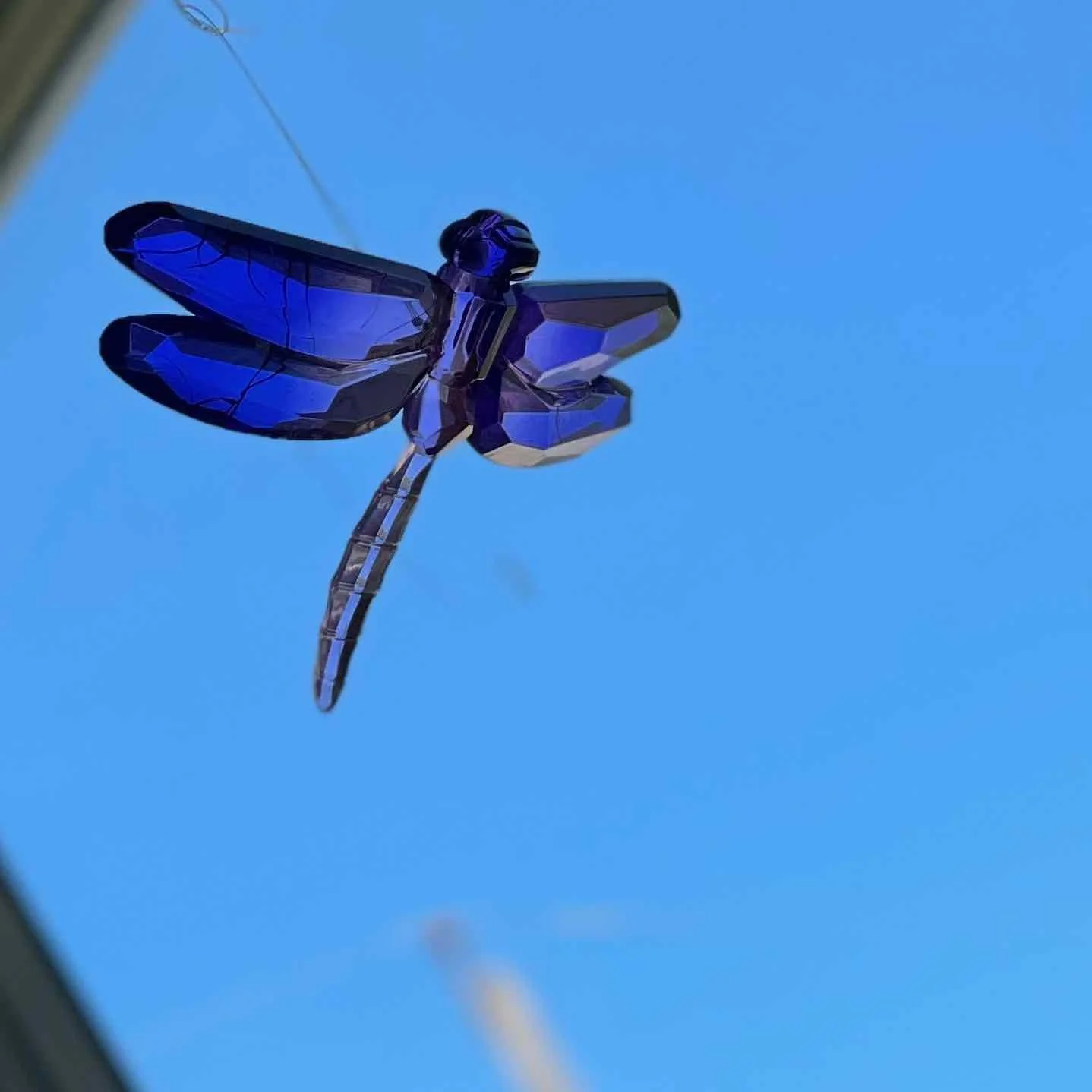Writing From the Inside Out 2022 Week 38 Prompts
based on W. S. Merwin’s After The Dragonfly
Read the poem
Do your own reflection on it, noting what it inspires in you
Feel free to use your own reflection as your prompt or…
Use the selection of prompts below the poem
Pick one that inspires you and write (feel free to use only one or write several poems using different prompts) or…
Don’t use any of the provided prompts and follow your inspiration from wherever it comes
After the Dragonflies
Dragonflies were as common as sunlight
hovering in their own days
backward forward and sideways
as though they were memory
now there are grown-ups hurrying
who never saw one
and do not know what they
are not seeing
the veins in a dragonfly’s wings
were made of light
the veins in the leaves knew them
and the flowing rivers
the dragonflies came out of the color of water
knowing their own way
when we appeared in their eyes
we were strangers
they took their light with them when they went
there will be no one to remember us
W. S. Merwin
https://www.poetryfoundation.org/poets/w-s-merwin
Please join Writing From The Inside Out by attending the read-around sessions on Friday afternoons. It’s free, fun, a great way to share, and reading a poem is optional. If you have not registered, click the button below; and if you have registered, you do not need to register again, simply use the link sent to you in your confirmation email. Register Here:
Next Read Around is September 23, 2022 at 4:00 PM (PST)
My Thoughts
Dragonflies seem like magical beings, with their translucent wings and iridescent bodies, with their ability to hover, to fly forwards, backwards, and sideways. They have captured the imagination of people around the world. Most Asian culture’s considered the dragonfly positively, as a sign of good luck. In European culture, dragonflies have darker associations, even said to have the ability to sew one’s eyes shut. They begin their lives as underwater insects eventually emerging from the water where they crawl out of thier acquatic exoskeletons into double winged adults with compound eyes composed of over 24,000 lenses. They have populated the planet for over 300 million years virtually unchanged and spread world wide “as common as sunlight.” Now, like so much of life on earth, they are threatened by loss of habitat. W.S. Merwin’s poem, After the Dragonfly, launches us into a future of their absence, and what might be lost in us, as we sew our eyes shut to the ecological apocalypse of our own making. Perhaps Merwin is giving us a warning: as we hurry into a world of not seeing and each extinct species drifts from our memory, the memory of us also fades and, one day, we too shall be unseen on the planet.
Prompt Menu
I have always loved dragonflies, fascinated by the agility of their double winged bodies in flight, the shimmer of their coloration, and by the sense that they truly are magical beings. Journal or write a poem about an insect or animal that fascinates you.
Personify the dragonfly (or creature of your choosing) and journal or write a poem from that embodiment.
Pick something “as common as sunlight” around you and journal or write a poem about what it might be like if it were forever gone from the world.
Describe something that was common when you were young that many grown-ups now never see.
Dragonflies spend the first portion of life underwater and the latter portion in the air. Take this as a metaphor for a portion of your life that is lived “underwater:” (under the surface) and a portion lived in the air (above the surface)—what is the gift of each environment? What underwater lessons might help you live in the air? Or vice-versa? Consider writing about the teaching of water and the teaching of air (and, by extension, the teaching of land).
Imagine how things might appear to an insect with compound eyes or how strange you might appear in those eyes.
Research stories or mythic associations with some insect or animal and retell or revise the story in prose or poetry.
Merwin once said: “I think there’s a kind of desperate hope built into poetry now that one really wants, hopelessly, to save the world.” Pick something you fear is at risk in the world and journal or write about it.
As usual, write about anything else that inspires you from the poem or from life that
